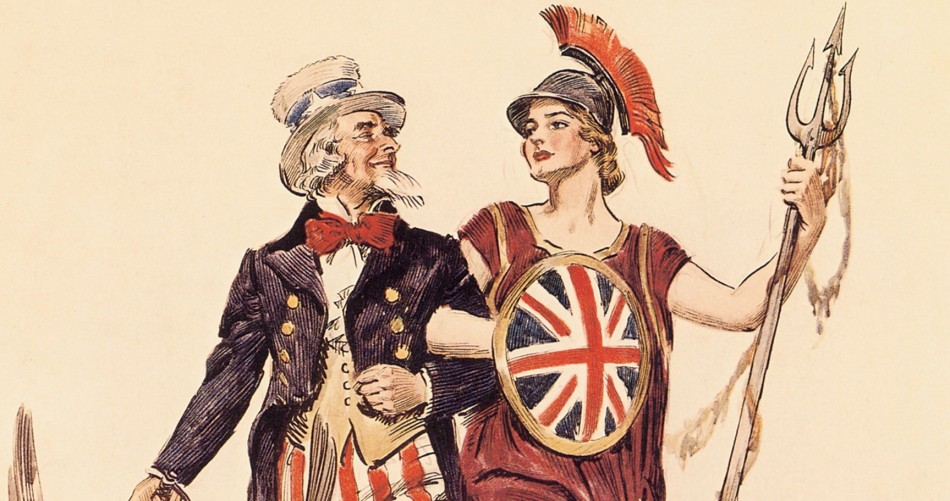The common maxim, “history is written by the victors“, is a favourite one among writers and journalists trying to elucidate the contested pasts of colonised peoples or nations for readers more familiar with the versions crafted by the colonisers. Ironically the quote is popularly attributed to the arch-imperialist Winston Churchill despite most sources pointing to the anti-imperialists George Orwell and Jawaharlal Nehru (respectively, “History is written by the winners” in 1944, and “History is almost always written by the victors and conquerors, and gives their view” in 1946). The saying is especially true of Ireland’s turbulent past which has been filtered through British eyes and words since the fevered imaginings of the Medieval scribe, Giraldus Cambrensis. So accustomed did the English-speaking world become to the barbarous portrayal of the Irish that many of our own people still seem to believe in the inherent inferiority of our indigenous language, culture and nationality. Or in the case of the British-apologist school of Irish historiography and journalism, are eager to defend the actions of the invaders while condemning the actions of the resisters.
(Which brings to mind the related words of the great German philosopher Walter Benjamin: “…with whom does the historical writer of historicism actually empathise? The answer is irrefutably with the victor. Those who currently rule are however the heirs of all those who have ever been victorious. Empathy with the victors thus comes to benefit the current rulers every time.” That is still true even when the “victors” are no longer the “rulers”, as is the case with the greater part of this island nation).
Since the mid-1960s the global understanding of the conflict in the north-east of Ireland has been mainly shaped through the partisan beliefs of the government, armed forces and press of the United Kingdom. Instead of being viewed for what it was, a contest born of Britain’s poisonous colonial legacy in the region, it was wilfully misinterpreted as a “sectarian” and “tribal” bloodletting relatively free of political or historical context. The news media of the United States of America in particular, with its heavy reliance on London-based correspondents and press agencies, was one of the worse offenders outside of the United Kingdom itself for this failure of journalistic integrity. With its own latent history of anti-Irish racism it did not take much to convince those working in the newsrooms of New York, Washington and Los Angeles that Britain’s thirty-year counter-insurgency campaign in Ireland was a justified one (when they bothered to pay any attention at all, outside of highlighting some contemporary attack in “England” itself). When the occasional massacre of protesting civilians or deaths of hunger-striking politicians disturbed the narrative, Britain’s embassy and consulates in the US were quick to ensure that “empathy” for the UK’s struggle to pacify the quarrelsome Irish natives was brought to the fore once again. A process aided by the increasing preponderance of British-born employees in senior positions within the United States’ media.
The UK’s pose as an impartial arbiter between “two warring tribes” – rather than being one of the “warring tribes” – has been so successful, and become so deeply embedded in the American understanding of the 1966-2005 “Long War” in the Six Counties, that it will likely never fade away. The best that one can hope for is to offer up an alternative, more truthful account that some might seek out or stumble upon. Hence one reason for the existence of An Sionnach Fionn (even allowing for its own partisan nature). Many of the same criticisms above apply to other conflicts around the world, and their interpretations. In that vein, the security affairs website, War on the Rocks, has published two lengthy articles presenting a very different take on the civil war in Syria and the general upheavals in the Middle East. The first is “Washington’s Sunni Myth and the Civil Wars in Syria and Iraq“, examining the initial stages of the conflict, while the second is “Washington’s Sunni Myth and the Middle East Undone“, an overview of the region. Both have stirred up considerable controversy (and conspiratorial accusations) and I share many of the sceptical opinions expressed by others. However both deserve to be read in order to bring some balance to a wildly imbalanced view of the troubles in Syria and beyond. A valuable alternative opinion on the Syrian situation by the historian John Dorney can also be seen in the Comments below the ASF article, “Opposition Factions Of The Syrian Civil War“.

I putting you in my will, young man. 😉
LikeLike
HAHA! I’m just the mouse that roared 😉
LikeLike
There was suppose to be an ”am” in there.
LikeLike
Actualy havent that much to pass on but was quite illl recently prompting pleaddings with my son Seàn to make sute that certain items like the 1914 editio of Notes on Nursing by Florrnce Nightiingale went to youger cousin inthe profession , acouple of antiqurian / Irish interest Medical publiations were for my Daughter Caitrįona and abook which was put in an padded envelope and adressed to you with instructions regardding postage shoud i expirr but not beforr then Still in an Outbox! Thats agrreat piece
LikeLike
Sorry to hear about the recent bout of illness, Eileen, hope all is well now. Thanks for that. Wrote it in minutes which is usually a sign of good inspiration 😉
LikeLike
Reblogged this on The Treason Felony Blog and commented:
Great overview of the flawed ‘warring tribes’ narrative that is deployed to gloss over the unresolved issues of colonialism in Ireland.
[If you don’t follow An Sionnach Fionn’s blog, by the way, it’s time you got your act together.]
LikeLike
Hear, hear! Share him widely!
LikeLike
Beir bua! Well articulated a chara
LikeLike